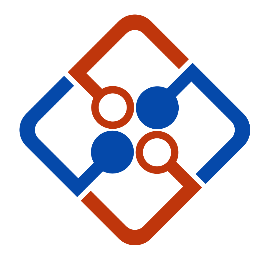Laravel framework is a free, open-source PHP web framework used for web application development. It is designed to make common web development tasks, such as routing, authentication, and caching, easier and more efficient by providing a set of tools and features to build modern, robust, and scalable web applications.
Some of the key features of Laravel include:
- MVC (Model-View-Controller) architecture: Laravel follows the MVC pattern, which separates the application into three distinct components: the model, which represents the data; the view, which represents the user interface; and the controller, which handles the logic and communication between the model and the view.
- Eloquent ORM: Laravel comes with an object-relational mapper (ORM) called Eloquent, which allows developers to work with databases using simple PHP objects. Eloquent makes it easy to create, read, update, and delete records in the database, and it also supports relationships between different models.
- Blade templating engine: Laravel uses the Blade templating engine to build the view layer of an application. Blade templates are simple PHP files that contain a mix of HTML and Blade syntax, and they can be extended and customized to create a consistent look and feel across an application.
- Artisan command-line interface: Laravel includes a command-line interface called Artisan, which provides a set of useful commands for tasks such as database migrations, seeding, and generating boilerplate code.
- Integration with other tools and libraries: Laravel integrates with a number of other tools and libraries, such as SwiftMailer for sending emails, Pusher for real-time messaging, and PHPUnit for testing. This makes it easy for developers to build feature-rich applications using the framework.
- Extensive documentation and community support: Laravel has extensive documentation and a large community of users who are willing to help and provide guidance. This makes it easy for developers to find help and support when needed.
Is Laravel the Best PHP Framework?

It is subjective to say whether Laravel is the best PHP framework or not, as different frameworks may be better suited for different projects and use cases. Laravel is a popular and feature-rich framework that is widely used by developers for building web applications, and it is known for its ease of use and robust ecosystem of tools and libraries. However, other frameworks such as CodeIgniter, Symphony, and Zend Framework may also be good choices depending on the specific needs of a project.
Ultimately, the best PHP framework for a particular project will depend on a number of factors, such as the size and complexity of the project, the type of application being built, and the preferences and expertise of the development team. Developers should consider a range of factors when choosing a framework, including the framework’s performance, scalability, security, and community support.
Also Read : Sanitize & Formatting Data in Laravel with Transformer Package
Some potential disadvantages of using the Laravel framework
Dependence on PHP: Laravel is a PHP framework, so it requires a server with PHP installed to run. This means that developers need to be familiar with PHP in order to use Laravel effectively.
Large codebase: Laravel is a feature-rich framework, which means that it has a large codebase. This can make it more difficult for developers to learn and understand all of the features and capabilities of the framework.
Limited compatibility with older versions of PHP: Laravel requires PHP 7.2 or higher, which may not be compatible with older versions of PHP. This could be a disadvantage for developers who need to support older systems or environments.
Performance: Laravel may not be as fast as some other frameworks due to its large codebase and use of various features and libraries. However, developers can optimize the performance of Laravel applications by following best practices and using caching and other techniques.

Leave Your Comment